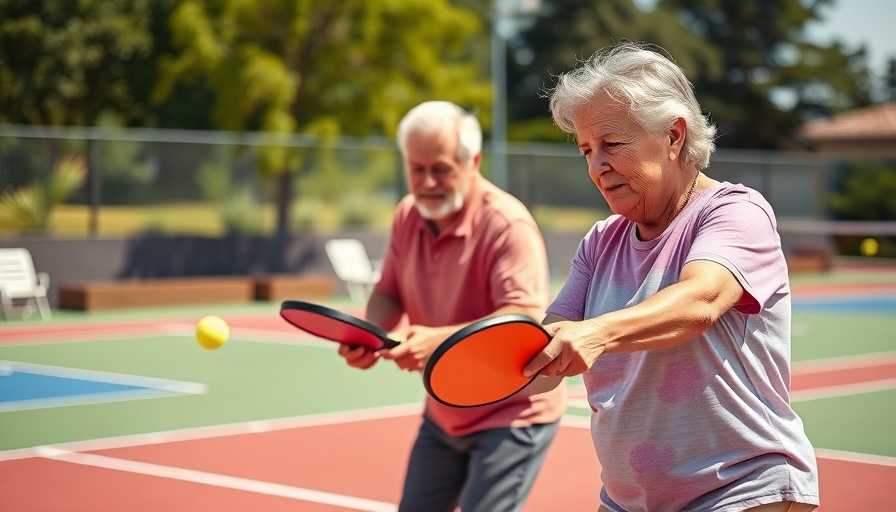
Understanding Joint Pain: A Common Challenge in Sports
March marks Pain Awareness Month, providing an opportunity to deepen our understanding of joint pain, particularly relevant to enthusiasts of sports such as pickleball, tennis, and golf. This month serves as a clarion call to not only recognize pain as an integral aspect of athletic life but also to seek solutions that enable continued participation in these beloved activities.
The Mechanics of Joint Pain in Athletes
Joint pain often emerges in athletes because of the repetitive motions and high-impact nature of sports like pickleball and tennis. Players frequently rely on their hips, knees, and shoulders, placing them at risk for stress injuries. A common scenario is an athlete who notices discomfort during a match, only to have that pain persist long after they’ve left the court. Over time, continued exertion can exacerbate these issues, leading to a restriction in mobility and enjoyment.
Exploring Treatment Options: From Non-surgical to Surgical
As athletes confront joint pain, understanding the spectrum of treatment options available is crucial. Non-surgical treatments are often effective for most overuse injuries. These can include physical therapy, which employs targeted exercises to strengthen the muscles surrounding the joint; chiropractic care, which focuses on alignment; and pain management techniques like corticosteroid injections that aim to reduce inflammation.
However, when these methods don’t produce the desired relief, surgical solutions may become necessary. For instance, arthroscopy is a minimally invasive technique that allows surgeons to inspect joints and address issues like meniscal tears. On the other end of the spectrum, joint replacement surgery provides a more permanent solution for athletes heavily impacted by chronic pain, replacing damaged joints with prosthetics.
The Importance of Seeking Immediate Care
When facing a sports-related injury, acting swiftly can significantly alter recovery outcomes. Among the community of active individuals, many injuries stem from overuse, yet delaying treatment can lead to more significant problems that can sideline an athlete for longer durations. Recognizing early symptoms—be it swelling, persistent discomfort, or a decreased range of motion—enables athletes to consult with specialists sooner, paving the way for effective treatment.
Inspiring Stories of Recovery
Consider the story of Jane, a local pickleball enthusiast. After experiencing persistent knee pain, she sought help early, pursuing physical therapy and embracing a tailored exercise program. With dedication and the guidance of her orthopedic specialist, she returned to the court six weeks later, able to play without discomfort. Such narratives are not uncommon, encouraging athletes to prioritize their health.
Prevention Best Practices: Enjoying Sports Safely
To maintain joy and longevity in sports, athletes can adopt safety measures to minimize risk factors. For example, proper warm-ups and cool-downs coupled with appropriate gear can preserve joint integrity. Athletes are also encouraged to listen to their bodies, taking breaks when needed and avoiding the urge to push through significant pain.
Engage With Your Community
As Pain Awareness Month unfolds, participating in community events can bolster awareness about joint health and inspire fellow athletes facing similar challenges. Engaging with local health initiatives not only promotes individual wellness but also strengthens community bonds around shared experiences and support.
Ultimately, joint pain doesn't have to mark the end of one’s involvement in sports like pickleball, tennis, or golf. By understanding the underlying causes and embracing available treatments, individuals can maximize their enjoyment while minimizing limitations. Seek help early, and remember that staying active in your favorite sport is always the ultimate goal.
 Add Row
Add Row  Add
Add 





 Add Row
Add Row  Add
Add 
Write A Comment